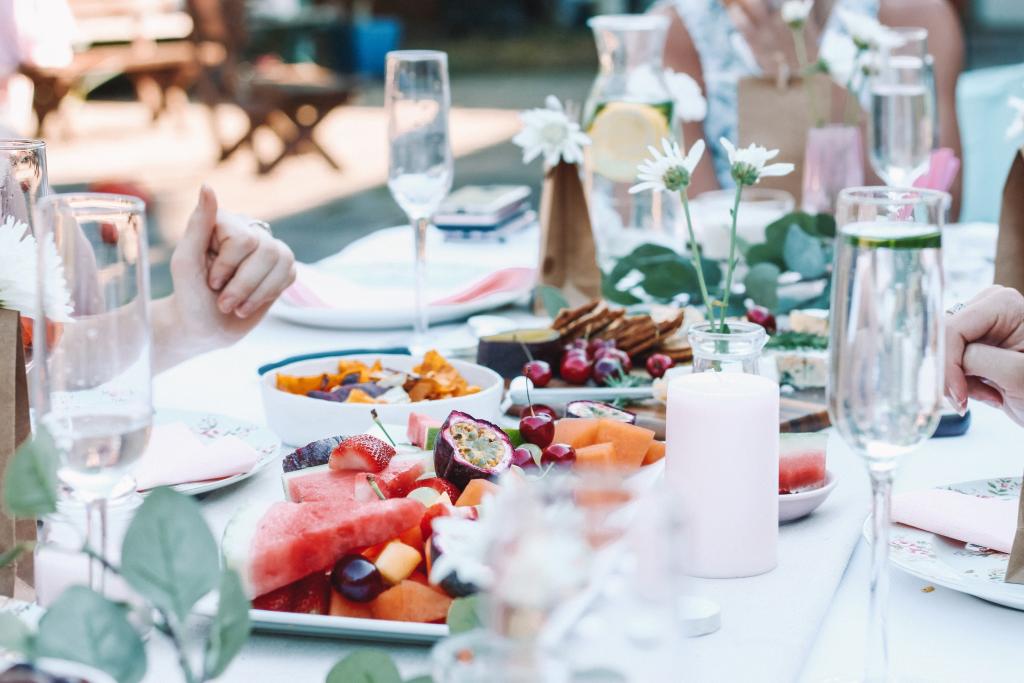
If you’re pregnant this holiday season you’re probably already starting to think about what you can and can’t eat at the Christmas buffet.
Unfortunately, mimosas aren’t the only thing you’ll have to avoid. When you are pregnant certain foods contain bacteria that can be harmful to you and your baby and can make you very sick.
But don’t let us put a damper on your Christmas feast. While you may not be able to tuck into your grandmother’s famous eggnog or aunt’s cheese platter, there are many other delicious foods you CAN eat and enjoy along with your family and friends.
When you are pregnant the bacteria found in some foods can be harmful for you and your baby. Your immune system is lower, so you are more at risk of food-borne illness.
Food-borne illnesses that are caused by bacteria such as listeria can not only make you sick, but cause serious complications for your baby.
The Grace Private team have put together a list of foods that are typically on the Christmas table to help you work out what you should and shouldn’t eat this holiday season.
Unfortunately, the snacks and nibbles platter is where you’re going to feel you’re missing out the most. Although, there are still plenty of yummy snacks you can eat when you are pregnant.
Foods to avoid:
Foods which are safe:

Whether you’re having a traditional hot Christmas dinner, or opting for a cold lunch, if you’re pregnant there are several foods you should avoid.
Avoid:
Safe:
If you’re a sweet tooth, you may find it difficult to refrain from eating certain desserts, however homemade ice cream, soft-serve ice cream or uncooked meringue can pose a serious risk and harbor dangerous bacteria.
Again, you should avoid unpasteurised dairy products or cold-pressed juices, food containing raw egg as well as desserts soaked in alcohol.
The Australian Dietary Guidelines advise that women who are planning to fall pregnant or are pregnant should avoid alcohol completely.
Fortunately, nowadays there are some amazing non-alcoholic alternatives such as alcohol free champagne and other drinks. Or, why not get out the blender and whip up some delicious home-made mocktails!
For many people, eating leftovers on Boxing Day is just as important as Christmas lunch!
However, if you are pregnant you need to be vigilant to ensure you’re not putting yourself at risk of contracting harmful bacteria. Leftovers should be eaten within 24 hours and reheated so they are steaming hot, to above 74 degrees Celsius, for at least two minutes.
If you would like more information on how to create the perfect pregnancy diet, we recommend you to make an appointment with Grace’s Dietitian, Sharnie Dwyer.
Sharnie has a holistic approach and a special interest in helping women manage their diet throughout all stages of their pregnancy and beyond. Ask for ‘Grace’ next time you visit your GP for a referral.
More resources

